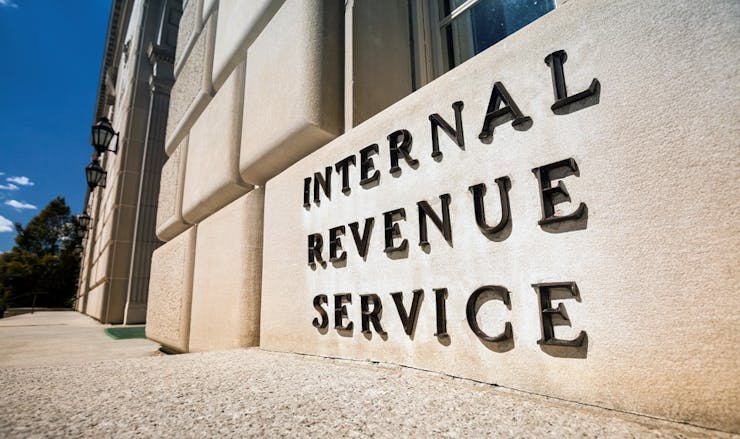Earlier this week, John Schroyer of MJ Biz Daily reported that the Internal Revenue Service is increasingly auditing Colorado cannabis companies, looking for mistakes and violations regarding large cash transactions. The audits focus on Form 8300, which any business, cannabis or not, must file upon receiving a cash payment of more than $10,000.
These reports are not to be taken lightly. The IRS is aggressively pursuing dispensaries, cultivation facilities, and anyone else in the cannabis business who deal with large amounts of cash and fail to file Form 8300. The penalties for violating the rules around 8300 are serious and heavy. Though Schroyer’s report focused on Colorado, the IRS’s interest in Form 8300 is likely to spread to all legal cannabis states.
As a tax attorney who works daily with cannabis companies, I’m not surprised by the IRS’s interest in Form 8300. There are a few steps every company can take to stay on the right side of the rule.
First question: Do you have to file? Here are the general instructions to the form:
Who must file. Each person engaged in a trade or business who, in the course of that trade or business, receives more than $10,000 in cash in one transaction or in two or more related transactions, must file Form 8300. Any transactions conducted between a payer (or its agent) and the recipient in a 24-hour period are related transactions. Transactions are considered related even if they occur over a period of more than 24 hours if the recipient knows, or has reason to know, that each transaction is one of a series of connected transactions.
Get Business Tips From Leafly
In layman’s terms, if you receive $10,000 in cash in one transaction or in two or more related transactions (this is from one entity, not multiple people), you must file Form 8300 or face stiff penalties. Per the IRS instructions, “If you receive more than one cash payment for a single transaction or for related transactions you must report the multiple payments any time you receive a total amount that exceeds $10,000 within any 12-month period.”
What are the penalties if you fail to file? If you simply fail to file on time, then the penalty is $100 per occurrence. If your business grosses less than $5 million, it’s capped at $500,000 per year. Here’s the good news: If you correct the failure to file within 30 days, the aggregate limit drops to $75,000.
However, if your cannabis business does $1 more than the annual gross mentioned above ($5 million) then the cap lifts to $1.5 million. There are a number of other penalties, but they all involve failing to file, failing to provide correct names, etc.
Now the really painful news. If you deliberately fail to file, the IRS levies a penalty of $25,000 or the actual amount of the transaction, up to $100,000, for each occurrence, whichever is greater. Even worse: There is no annual limit for intentionally failing to file Form 8300. If you’re a chronic non-filer, I would recommend binge-watching Orange is the New Black to get survival tips. Felony charges can be brought against you.
Learn How Leafly Can Help Your Business
How do you avoid this, and how can you minimize the reporting requirements? Here are five suggestions to keep you out of your local IRS auditor’s office.
1. File Online
The IRS has capabilities for you to file Form 8300 online. Go to this website, which will redirect you to the Financial Crimes Enforcement Network, where you can fill it out online.
2. Keep Copies for Five Years
This is not a recommendation — it is a regulation mandated by the IRS. Keep a folder handy and simply put the printed form in it, and then keep it safe. The IRS is very competent when it comes to keeping records, but even if they are 99.99 percent on track, that still means something will get lost in the shuffle.
3. You Must File Within 15 Days of Receiving the Money
Don’t get complacent and tell yourself you’ll do all the forms on Friday before you stop in at happy hour down the street. Time escapes, and before you know it, the penalty letters will start appearing.
4. Create and Send Customer Statements
By Jan. 31 of the following fiscal year, you must provide to the customer who gave you the cash a statement that includes:
- The name and address of the cash recipient’s business
- Name and telephone number of a contact person for the business
- The total amount of reportable cash received in a 12-month period, and
- A statement that the cash recipient is reporting the information to the IRS.
5. Understand Which Transactions Count
What is cash? Is it currency and/or money orders? Review the “IRS Form 8300 Reference Guide” to understand your obligations and what is considered a reportable transaction.
One final important word of caution: You are prohibited from either structuring, or help structure, a financial transaction that will avoid the reporting requirement. If you do, civil and criminal penalties will be applied.
Bob Carp is a leading tax attorney and author who specializes in cannabis industry tax issues. His firm, Carp Law Offices, is based in Boston.






